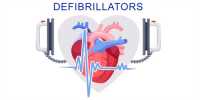According to a new study presented at the American College of Cardiology’s 70th Annual Scientific Session, moderate alcohol consumption – defined as no more than one alcoholic drink for women and two for men per day – is associated with a lower risk of dying from cardiovascular disease when compared to individuals who abstain from drinking or drink excessively. Based on a subset of patients who underwent brain imaging, it is also the first study to show that moderate alcohol consumption may be heart protective, in part by reducing stress-related brain signals.
“We discovered that stress-related brain activity was higher in non-drinkers compared to moderate drinkers, with people who drank excessively (more than 14 drinks per week) having the highest level of stress-related brain activity,” said Kenechukwu Mezue, MD, a fellow in nuclear cardiology at Massachusetts General Hospital and the study’s lead author. “The theory is that moderate amounts of alcohol may have effects on the brain that can help you relax, reduce stress levels, and, possibly, lower the incidence of cardiovascular disease through these mechanisms.”
Moderate alcohol intake – defined as no more than one alcoholic drink for women and two for men per day – has been associated with a lower risk of dying from cardiovascular disease when compared with individuals who abstain from drinking or partake in excessive drinking, according to a new study.
While Mezue was quick to point out that these findings should not be used to encourage alcohol consumption, he did say they could pave the way for new therapeutics or the prescription of stress-relieving activities like exercise or yoga to help minimize stress signals in the brain.
“According to the findings of the current study, moderate alcohol consumption has a positive effect on the brain-heart connection. However, because alcohol has a number of negative side effects, including an increased risk of cancer, liver damage, and dependence, other interventions with better side effect profiles that benefit brain-heart pathways are required “Mezue stated.
The exercise was found to have a similar effect on brain activity as well as the incidence of cardiovascular disease and events in a related study by the same research team (which is also being presented at ACC.21). According to the authors, exercise is associated with reduced stress-related brain activity in a dose-dependent manner. While the link between stress and heart disease is widely acknowledged, the authors claim that little research has been done on how modifying stress may help protect heart health.

The data came from the Mass General Brigham Biobank health care survey, which had 53,064 participants, with 59.9 percent of them being women and an average age of 57.2 years. Alcohol consumption was self-reported and classified as low (one drink per week), moderate (1-14 drinks per week), or high (more than 14 drinks per week). Diagnostic (ICD) codes were used to identify major adverse cardiovascular events such as heart attacks, strokes, and related hospitalizations.
752 of the patients were subjected to 18F-fluorodeoxyglucose positron emission tomography, or PET imaging, which is commonly used in cancer screening but can also reveal areas of the brain with increased activity. Researchers were able to use the scans to objectively measure activity in brain regions known to be associated with stress. Researchers measured stress-related brain activity by dividing activity in the frontal cortex by activity in the amygdala (the part of the brain associated with fear and stress) (the part of the brain involved in executive functions). They then divided the patients into groups based on the level of brain stress activity.
Of the 53,064 participants, 7,905 (15%) had a major adverse cardiovascular event, with 17 percent having a low alcohol intake and 13 percent having a moderate alcohol intake. People who reported moderate alcohol consumption had a 20% lower chance of having a major event compared to those who reported low alcohol consumption (in adjusted analysis), and they also had lower stress-related brain activity. Even after controlling for demographic variables, cardiovascular risk factors, socioeconomic variables, and psychological factors, this remained significant.
“Previous research by our group and others has found a strong link between increased amygdalar activity and an increased risk of major adverse cardiovascular outcomes such as heart attack, stroke, or death. Path analyses in the current study revealed that the link between moderate alcohol consumption and lower cardiovascular event risk is significantly mediated by reductions in amygdalar activity “Mezue stated.
The study is limited due to self-reporting of alcohol consumption based on the average number of drinks consumed per week. The data is also from a single-center, and each imaging sub-study participant received only one brain scan. Repeated brain scans and more detailed alcohol intake assessments over time would be required to demonstrate that the observed reductions in brain activity are the direct result of moderate alcohol consumption.















